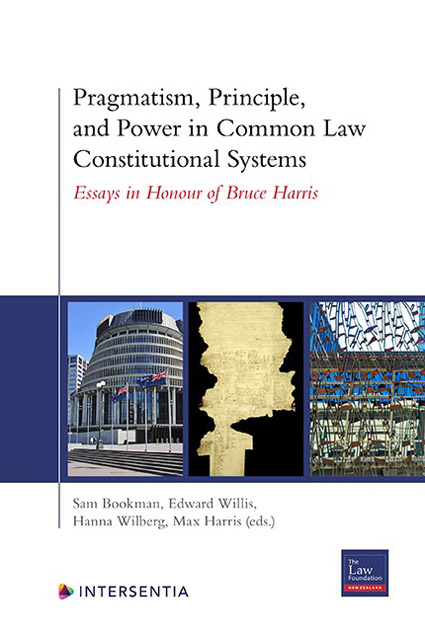 Pragmatism, Principle, and Power in Common Law Constitutional Systems
Pragmatism, Principle, and Power in Common Law Constitutional Systems Book contents
- Frontmatter
- Foreword
- Preface
- Contents
- The Writings of Professor Bruce Harris
- List of Cases
- List of Contributors
- Introduction
- Part I The Nature of Executive Power
- Part II Issues Concerning The Judiciary: The Nature of Judicial (and Executive) Power
- Part III Issues Concerning The Judiciary: Creativity and Pragmatism in Judicial Method
- Part IV Issues Concerning The Judiciary: Judicial Appointment and Accountability
- Part III The Nature of Unwritten Constitutions and Their Future
- Index
The Development of Global Regulatory Standards by International Courts and Tribunals: Whaling, Tobacco and Renewable Energy
Published online by Cambridge University Press: 19 November 2022
- Frontmatter
- Foreword
- Preface
- Contents
- The Writings of Professor Bruce Harris
- List of Cases
- List of Contributors
- Introduction
- Part I The Nature of Executive Power
- Part II Issues Concerning The Judiciary: The Nature of Judicial (and Executive) Power
- Part III Issues Concerning The Judiciary: Creativity and Pragmatism in Judicial Method
- Part IV Issues Concerning The Judiciary: Judicial Appointment and Accountability
- Part III The Nature of Unwritten Constitutions and Their Future
- Index
Summary
INTRODUCTION
In the penultimate chapter of his book New Zealand Constitution, Professor Harris remarks that ‘[m]odern international law creates normative expectations of what the country should consider providing in domestic law in respect of large areas of generic human activity’. Indeed, international law increasingly regulates matters that are central to domestic public policy. States have become answerable internationally for activity in domains such as healThpolicy, resource management and environmental protection that were previously effectively reserved to the administration of national governments. As a result, international courts and tribunals increasingly find themselves in a position where they must address such matters of domestic public policy in order to resolve international disputes. Further, the applicable international legal rules are often lacking in specificity. The international adjudicatory response has been to engage in the formulation of standards and tests governing states’ regulatory activity in finer grain.
The development of regulatory standards can notably be seen in international dispute settlement in the specialised fields of trade and investment protection, in disputes concerning riparian rights, and in the law of the sea, including specifically in areas including international health protection and the law on transboundary harm. International adjudicatory bodies’ identification of regulatory standards is by nature ad hoc, and the standard articulated in each case depends on the law that is being applied. However, commonalities are becoming apparent. For instance, the standards frequently take the form of requirements for regulatory coherence, specifying that there be rational relationships between states’ regulatory measures and their legitimate objectives. There is considerable debate about whether such standards should go further to incorporate requirements of proportionality between states’ regulatory actions and their effects on other states’ legal interests. While proportionality might in theory make for better balancing of competing interests it is doubtful that states would wish to subject themselves to the required oversight. Indeed, international law may be too far removed from the daily life of affected populations to offer the institutional mechanisms that would be needed.
International law scholars have worked hard to explain the emergence of regulatory standards, describing these standards withreference to ideas of ‘standards of review’ and ‘methods of review’, and in terms of ‘deference’ to domestic legal authorities.
- Type
- Chapter
- Information
- Pragmatism, Principle, and Power in Common Law Constitutional SystemsEssays in Honour of Bruce Harris, pp. 169 - 200Publisher: IntersentiaPrint publication year: 2022


